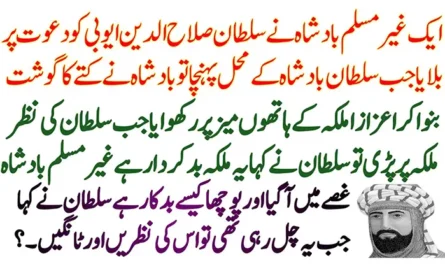What is Couples Therapy?
Couples therapy is a form of psychotherapy designed to help partners improve their relationship. It involves working with a trained therapist to address issues, improve communication, and strengthen the emotional bond between partners.
Common Misconceptions
Many people believe that couples therapy is only for relationships in crisis. However, therapy can benefit any couple looking to enhance their connection and navigate challenges together.
Goals of Couples Therapy
The primary goals of couples therapy are to improve communication, resolve conflicts, rebuild trust, and deepen emotional intimacy. By addressing these areas, couples can build a stronger, more resilient partnership.
The Benefits of Couples Therapy
Improved Communication
Effective communication is the cornerstone of a healthy relationship. Couples therapy helps partners identify communication barriers and develop skills to express themselves more clearly and listen actively.






Conflict Resolution
All relationships experience conflict, but it’s how couples handle these disputes that matters. Therapy provides strategies for resolving conflicts in a healthy, constructive manner.
Rebuilding Trust
Trust is crucial in any relationship. Couples therapy can help partners understand the root causes of trust issues and take steps to rebuild trust through transparency and accountability.
Enhanced Emotional Intimacy
Emotional intimacy is about feeling connected and understood. Therapy can help partners deepen their emotional bond by encouraging vulnerability and open expression of feelings.
Strengthening the Partnership
Couples therapy encourages partners to set relationship goals, create a shared vision for their future, and work together as a team to achieve these goals.
Improved Communication
Identifying Communication Barriers
Therapy helps couples recognize patterns of poor communication, such as avoiding difficult conversations or engaging in blame and criticism.
Developing Effective Communication Skills
Therapists teach techniques like “I” statements, which help partners express their feelings without accusing or blaming the other person.
Active Listening Techniques
Active listening involves fully concentrating, understanding, and responding thoughtfully to what your partner is saying. This practice can significantly improve mutual understanding.
Conflict Resolution
Understanding Conflict in Relationships
Conflict is a natural part of any relationship. Understanding its sources and dynamics can help couples manage disagreements more effectively.
Healthy vs. Unhealthy Conflict
Healthy conflict involves discussing issues openly and respectfully, while unhealthy conflict can involve avoidance, hostility, or emotional withdrawal.
Strategies for Resolving Disputes
Therapists provide tools for resolving disputes, such as compromise, negotiation, and seeking win-win solutions.
Rebuilding Trust
Causes of Trust Issues
Trust issues can stem from past betrayals, dishonesty, or unmet expectations. Identifying these causes is the first step toward rebuilding trust.
Steps to Rebuild Trust
Rebuilding trust involves consistent honesty, open communication, and a willingness to forgive and move forward.
Importance of Transparency and Accountability
Being transparent about feelings and actions and holding each other accountable helps to restore trust and strengthen the relationship.
Enhanced Emotional Intimacy
Importance of Emotional Intimacy
Emotional intimacy fosters a deeper connection and understanding between partners. It’s essential for a strong, lasting relationship.
Techniques to Deepen Emotional Connection
Therapists often encourage activities that promote closeness, such as shared hobbies, meaningful conversations, and physical affection.
Expressing Vulnerability
Being open and vulnerable with your partner can enhance emotional intimacy and strengthen your bond.
Strengthening the Partnership
Setting Relationship Goals
Setting mutual goals helps partners focus on what they want to achieve together and provides a sense of direction and purpose.
Creating a Shared Vision
A shared vision for the future fosters unity and helps couples navigate challenges with a common perspective.
Working as a Team
Couples therapy emphasizes the importance of teamwork, encouraging partners to support each other and work together toward their goals.
When to Seek Couples Therapy
Signs Your Relationship May Benefit from Counseling
Couples should consider therapy if they experience ongoing conflicts, communication breakdowns, trust issues, or a lack of intimacy.
Overcoming the Stigma
Seeking therapy is a proactive step toward improving your relationship. It’s important to overcome any stigma associated with getting professional help.
Finding the Right Therapist
Look for a licensed therapist with experience in couples counseling. It’s essential to find someone both partners feel comfortable with.
The Role of the Therapist
What to Expect in a Therapy Session
Therapy sessions typically involve discussing issues, exploring feelings, and working on communication and conflict resolution skills.
Therapist’s Techniques and Approaches
Therapists use various techniques, such as role-playing, homework assignments, and structured conversations, to help couples improve their relationship.
Confidentiality and Trust
Therapists maintain confidentiality, creating a safe space for partners to express their thoughts and feelings openly.
Types of Couples Therapy
Emotionally Focused Therapy (EFT)
EFT focuses on creating secure emotional bonds between partners. It helps couples understand and change negative patterns of interaction.
Overview of EFT
EFT is based on the idea that emotional security is key to a healthy relationship.
Benefits of EFT
EFT can help couples increase emotional closeness and improve communication.
How EFT Works
EFT involves identifying and addressing underlying emotional needs and fears.
Cognitive-Behavioral Therapy (CBT)
CBT helps couples change negative thought patterns and behaviors.
Overview of CBT
CBT focuses on how thoughts influence feelings and behaviors.
Benefits of CBT
CBT can help couples develop healthier ways of thinking and interacting.
How CBT Works
CBT involves identifying negative thoughts and replacing them with positive, constructive ones.
The Gottman Method
The Gottman Method is based on extensive research into what makes relationships work.
Overview of The Gottman Method
This method emphasizes building a strong friendship, managing conflict constructively, and creating shared meaning.
Benefits of The Gottman Method
The Gottman Method provides practical tools for improving communication and resolving conflicts.
How The Gottman Method Works
Therapists use specific exercises and techniques to help couples strengthen their relationship.
Imago Relationship Therapy
Imago Therapy focuses on understanding and transforming conflict into healing and growth.
Overview of Imago Relationship Therapy
Imago Therapy combines






